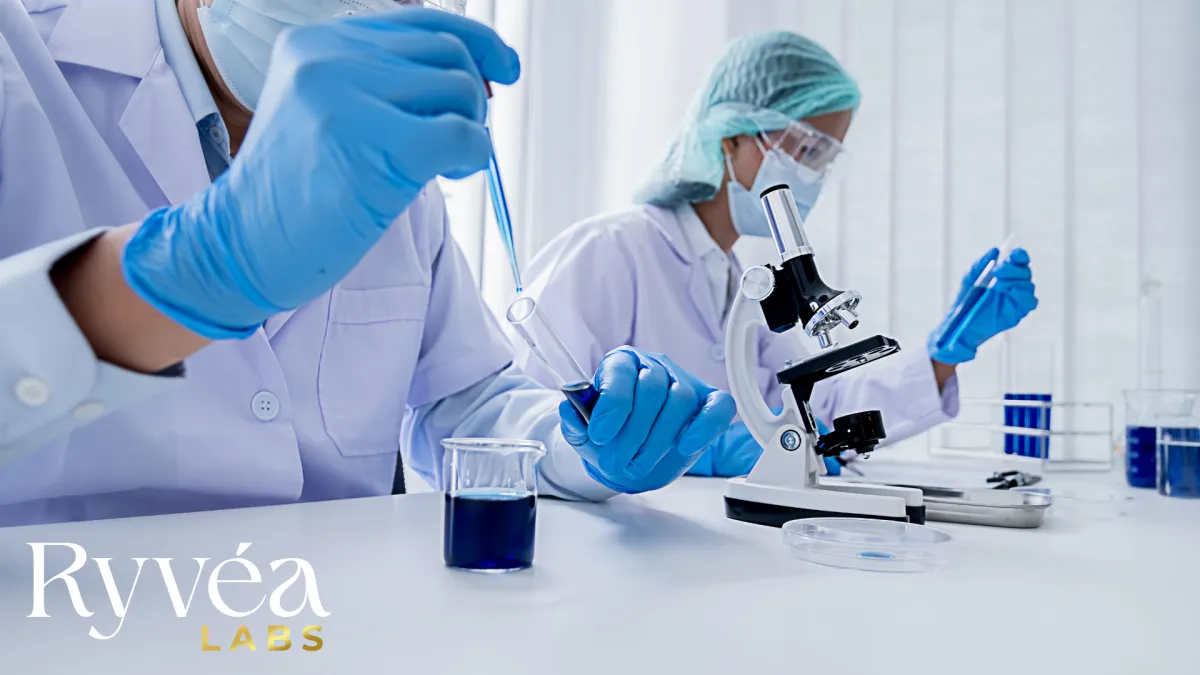
What Are ‘Research Peptides’ and Is It Safe to Use Them?
What Are ‘Research Peptides’ and Is It Safe to Use Them?
“The term ‘research chemical’ is used to describe substances sold for scientific use—not for human consumption or therapeutic purposes.”
Disclaimer: This is a publicly sourced quote, used for educational context only. (FDA Guidance on Unapproved Drugs)

Introduction
You may have seen peptides online labeled “for research use only.” But what does that actually mean?
Are these peptides safe? Are they legal? And why are they sold under such specific disclaimers?
In this guide, we’ll break down the facts about research peptides, how they differ from prescription medications, and the real risks involved in using them without medical supervision. If you’re curious but cautious, you’re in the right place.
What Are Research Peptides?
Research peptides are synthetic compounds made for laboratory studies, preclinical experiments, or in vitro analysis. They are:
Not FDA-approved for human use
Not considered dietary supplements
Sold strictly under the disclaimer: “For research use only. Not for human consumption.”
This labeling isn’t just a technicality—it’s a legal and regulatory boundary that determines how these compounds can be marketed and used.
Explanation from federal regulators:
FDA – Understanding Research-Only Substances
Why Are They Sold This Way?
Peptides in the research-use category are often in early stages of scientific evaluation. Some have:
Limited or no human clinical data
No formal drug approval or established safety profile
By labeling them as “research-only,” companies can legally sell them for experimental purposes, as long as they do not claim or imply any health benefits or human applications.
This is how peptide sellers avoid FDA enforcement—by not marketing for human use.
Are People Actually Using Research Peptides?
Yes—though it comes with serious risk.
Despite the disclaimers, some consumers purchase research peptides and:
Inject them themselves
Follow dosing advice from online forums or influencers
Attempt to “biohack” their metabolism, recovery, or focus
These practices fall outside of legal medical use and can carry significant safety concerns, especially since:
Dosage guidelines are unregulated
Purity may be questionable
No healthcare oversight is involved
Risks of unregulated use:
STAT News – The Peptide Craze and Social Media Risks
Are Research Peptides Safe?
Because they are unapproved and unregulated for human use, research peptides are not guaranteed to be safe—especially for self-injection or oral intake.
Here’s what makes them risky:
Purity varies widely between suppliers
Lack of third-party testing or sterility standards
Unknown side effects, especially in long-term use
No legal recourse if harm occurs
Even if a compound is being studied for potential therapeutic benefits, that does not mean it is safe or effective outside a clinical setting.
What Should You Look for in a Research Peptide Supplier?
If you’re buying research peptides for legal study purposes, these are minimum criteria:
✅ Clear “research-use-only” disclaimers
✅ No suggestions of human use, injections, or health claims
✅ Certificates of Analysis (COAs) and third-party lab testing
✅ Transparency about compound origin and manufacturing standards
Ryvéa Labs provides peptides strictly for research purposes and makes it easy to:
Understand what each compound is being studied for
Access third-party testing data
Make informed decisions—not impulse purchases
Can These Peptides Ever Become FDA-Approved?
Some research peptides are being evaluated in clinical trials. If results show safety and efficacy, they may eventually receive:
Investigational New Drug (IND) status
FDA approval through the New Drug Application (NDA) process
Until then, they remain unapproved and should not be used as treatments or supplements.
FDA drug approval overview:
FDA – New Drug Development Process
Conclusion – What You Can Do Next
Research peptides are a growing area of scientific curiosity, but they are not ready for mainstream use. If you’re exploring them, do it responsibly:
Understand the laws and limitations
Don’t assume “research” means “safe”
Stick with providers who prioritize education and transparency
Ryvéa Labs exists to help you navigate this space with confidence, not confusion.
Download Our Free Peptides 101 Ebook
Final Thoughts
The rise of research peptides highlights the potential of emerging science—but also the need for caution. Until these compounds are properly tested and approved, the best thing you can do is stay informed, ask questions, and choose trusted platforms that put your safety first.
